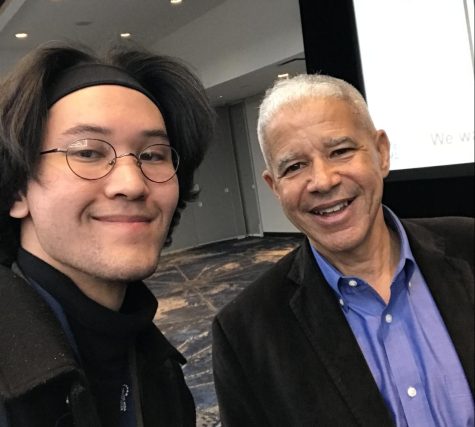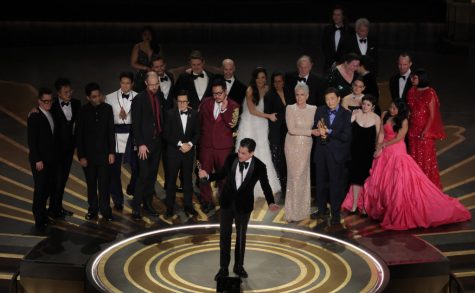“Rocketman” outshines “Bohemian Rhapsody”
June 12, 2019
Elton John’s music has been gracing our speakers since 1969. Everyone knows the hits, “Bennie and the Jets,” “Rocketman,” and “Tiny Dancer.” These hits and more only scratch the surface of what is John’s extensive songbook.
Now, his story is being immortalized in the film “Rocketman” which dives into his rise to fame, his subsequent substance abuse, and his recovery.
When thinking about those elements, it is hard not to recall the film “Bohemian Rhapsody” which chronicles the rise to fame, the effects of substance abuse, and the recovery of rock legend Freddie Mercury.
On the surface, the films should be the same. They are in fact telling two different versions of the same story. However, “Rocketman” outshines “Bohemian Rhapsody” on all fronts by telling an age-old story of musicians facing their demons in a new way.
One of the best ways to tell the story of a musician is through their music, and in this regard “Rocketman” soars. The film can best be defined as a musical, and as major life events occur John, played by Taron Egerton.
This puts the music in the forefront and shows the relationship between the art and its artist. John is defined by his music and there is no good way to tell his story without putting that music front and center.
“Bohemian Rhapsody” on the other hand puts the music of Queen in the background of the film. Except for a sequence where the band records and fights for the song the film is named after, music is used as more of a time element.
“Rocketman” also succeeds in the development of John as a character. The film does not shy away from showing the flaws of its subject and by doing this it shows the deeper layers of John as a human being.
The film also benefits from having it’s subject alive and assisting with the project, this allowed the people working on the film to have further insight into what the actual experiences of John were, not just the outside perspective of what happened.
This insight is exactly what “Bohemian Rhapsody” is lacking. It can only examine its subject through the lens of others. Through this, it loses the ability to truly develop Mercury as a character in a film and instead simply tells the story of what happened without much insight into the deeper workings of his psyche.
It is also burdened with the fact that the film’s subject is no longer living. This creates a challenge where the filmmakers did not want to challenge the image of Mercury that people respect and love in the modern era. They are forced to keep the image of Mercury and thus, they have no choice but to keep his character rather flat.
Additionally, “Rocketman” branches off from the traditional structure of a biopic. The film is told as a story that John is sharing during an Alcoholics Anonymous meeting. The film also includes some fantastical elements that are intended to match the over the top nature of John as a character. For example, in one scene John is playing a concert and hops up on his piano and he and the audience begin floating.
By having a different narrative structure, “Rocketman” gives itself the space to play around with how the true story is being told. “Bohemian Rhapsody,” in contrast, sticks to the traditional structure and elements of a biopic.
“Bohemian Rhapsody” does not break from the mold and includes common elements of biopics like listing the year events are happening and telling the story from an outside perspective on its subject.
Sticking to these traditional elements leaves the film in a position where it can not create flamboyant moments that would be fitting of Mercury. Instead, it sticks to a rigid traditional format that leaves what should be an over the top film about an over the top subject feeling subdued.
Overall, “Rocketman” succeeds where “Bohemian Rhapsody” fails by creating a film as flamboyant as its subject and through this flamboyance, it brings a legend to life.

















